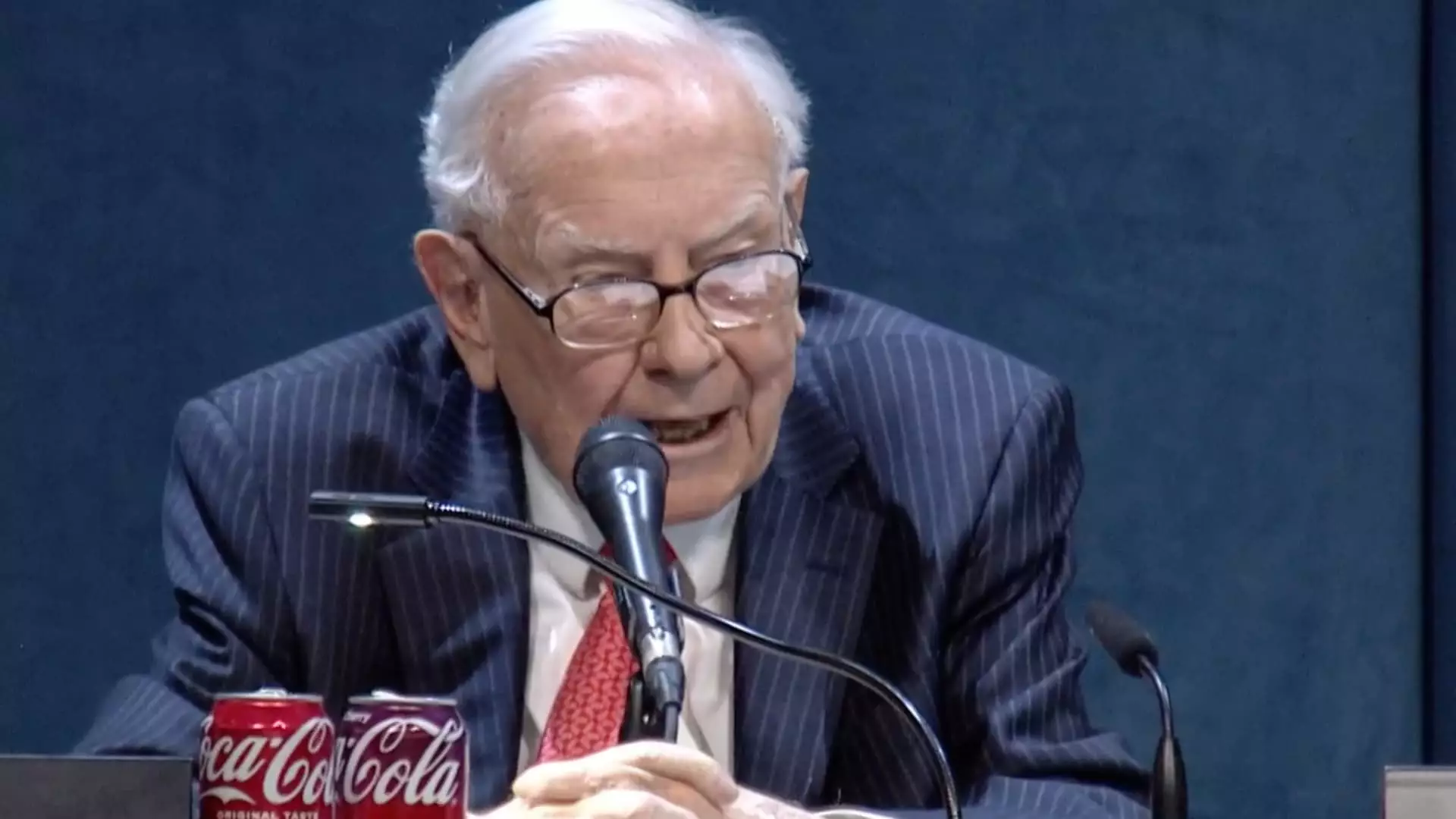At the epicenter of the American economic landscape, Warren Buffett’s commentary at Berkshire Hathaway’s recent shareholder meeting resonated with profound implications. As a revered figure in finance, the so-called “Oracle of Omaha” took a clear stand against the isolationist trade policies currently employed by the U.S. administration, encapsulating a critical moment in economic discourse. In an era marked by heightened tensions and protectionist sentiments, Buffett’s assertions carry weight, inviting us to rethink the role of trade as a conduit for global prosperity rather than a battleground for nationalistic fervor.
Buffett, without naming President Trump directly, articulated a sentiment that echo many quarters of both economic thought and common sense: imposing punitive tariffs on the world is not merely misguided; it’s a dangerous precedent. His assertion that “Trade should not be a weapon” encapsulates a vital argument in favor of cooperative global economics. Trade can forge connections, foster understanding, and ultimately lead to a climate of safety and prosperity—not just for America, but for the global community.
The Peril of Protectionism
The billionaire investor warns that “trade and tariffs can be an act of war,” conveying an urgent reminder about the long-term ramifications of protectionist strategies. By adopting a Heavy-Hand policy, the U.S. risks alienating countries that could be potential partners, jeopardizing decades of economic collaboration and goodwill. Significantly, Buffett emphasized that the United States may find itself on the wrong side of history if it perceives globalization as a zero-sum game. He pointedly stated that the more successful other nations become, the more robust the U.S. economy is likely to grow. This perspective starkly contrasts with a protectionist view, which frames international trade as a threat to domestic job security.
Moreover, tariffs can create a false sense of security. Rather than nurturing American industries, they often lead to higher consumer prices, stifled competition, and retaliatory measures from foreign countries that put American businesses at a disadvantage in the global marketplace. Buffett’s insights, drawn from his extensive experience in navigating market complexities, highlight that true economic security necessitates a collaborative approach, where nations uplift one another rather than undermine.
A Shift in Economic Landscape
His comments come in the wake of significant market turmoil, ignited by the White House’s unexpected tariffs, which represent the most severe import levies in decades. This shift has caused ripples of uncertainty, challenging investors and business leaders to reconsider their strategies profoundly. Buffett’s candid remarks align with a broader narrative emphasizing the necessity for stability in international economic relationships, reinforcing that volatility often breeds the very dysfunction it seeks to eliminate.
As the first-quarter GDP reflected a contraction for the first time since 2022, there’s a palpable sense of urgency for businesses and investors to adapt to changing conditions. Buffett’s assessment underscores the interconnected nature of modern economics; tariffs disrupt not just trade but the entire fabric of business operations and investor confidence. With Berkshire Hathaway’s substantial holdings across diverse industries—from insurance to energy—Buffett finds himself uniquely positioned to comment on the intricate relationships that compose the vast U.S. economic landscape.
The Future of American Industry
Buffett’s recent actions further illustrate his cautious approach in such an unpredictable environment. With a staggering $347 billion in cash reserves, it appears he is preparing for opportunities that may arise amid the chaos. By divesting stocks, particularly in major holdings like Apple and Bank of America, he signals an understanding that the current landscape may necessitate a dramatic recalibration of strategies to weather potential future storms.
As Buffett articulates a vision for trade founded on collaboration instead of conflict, he defines an imperative: rather than erect barriers, we must seek pathways to cooperation. His remarks at the shareholder meeting beckon both leaders and constituents to recognize that genuine economic growth is achieved collectively, fostering an environment where innovation thrives, and economies flourish side by side. Thus, as we navigate turbulent waters, Buffett’s wisdom serves not just as advice for investors but as a universal reminder of the interconnectedness that defines our world today, urging us to champion trade as a tool for greater good.

